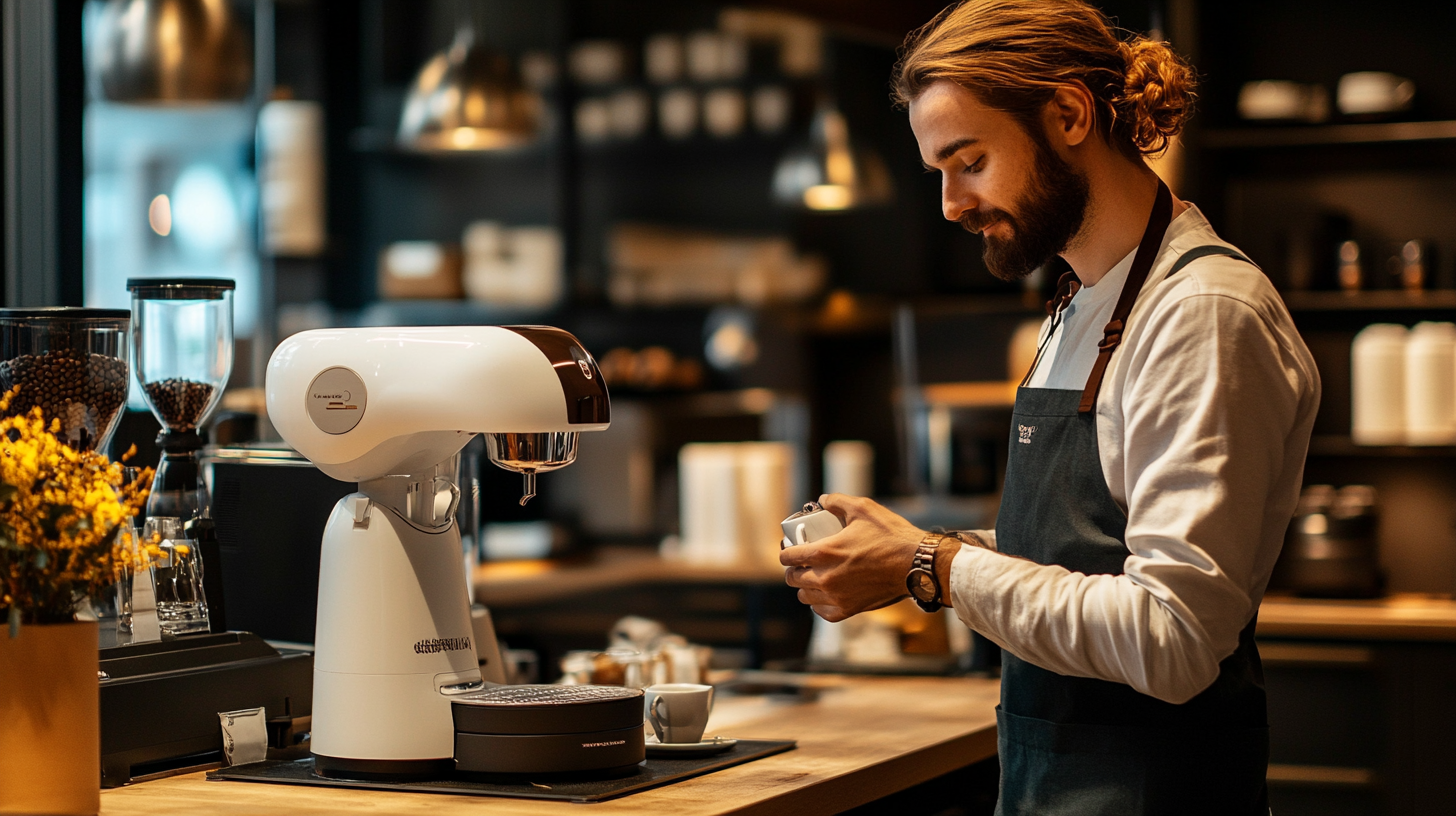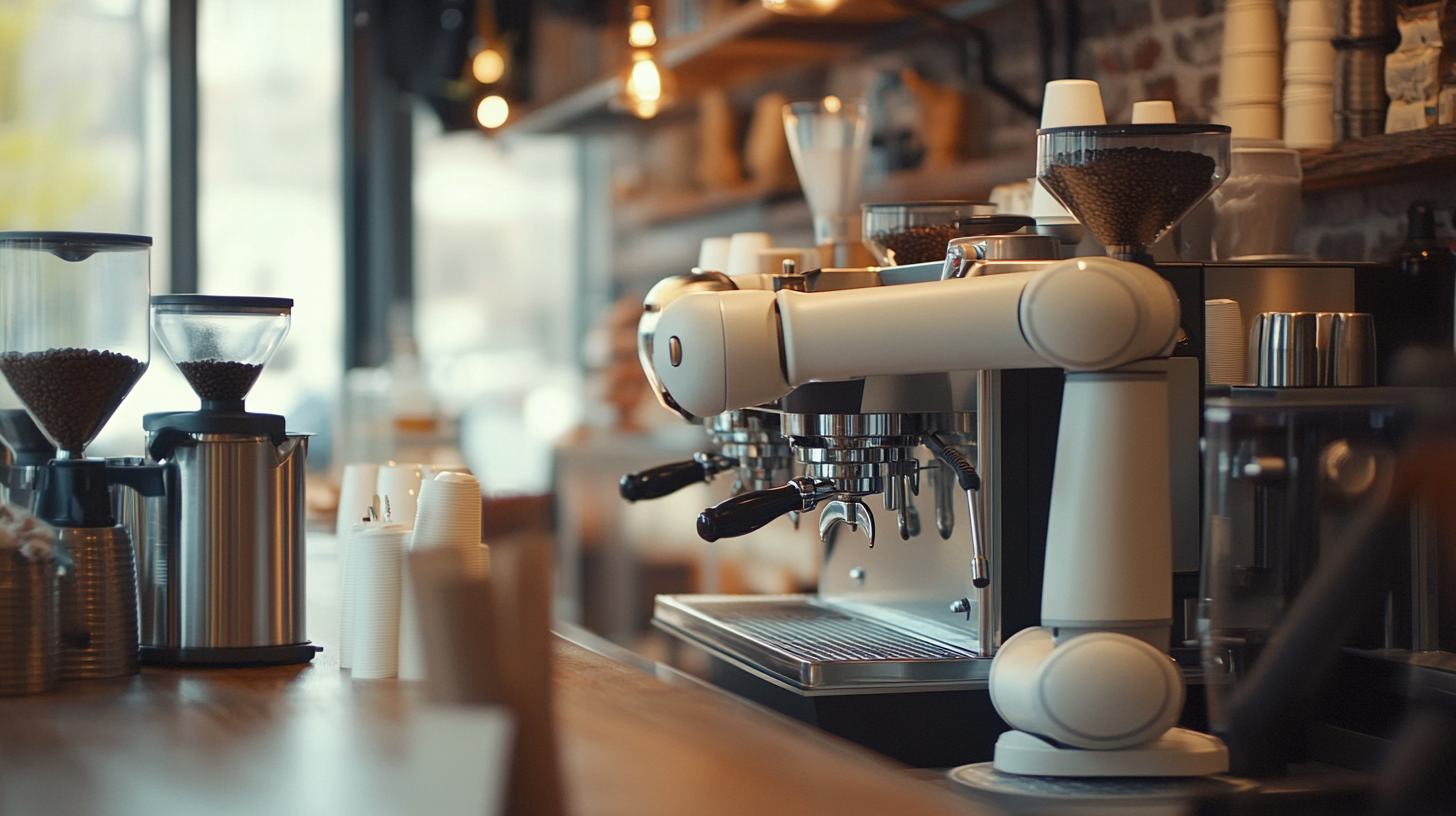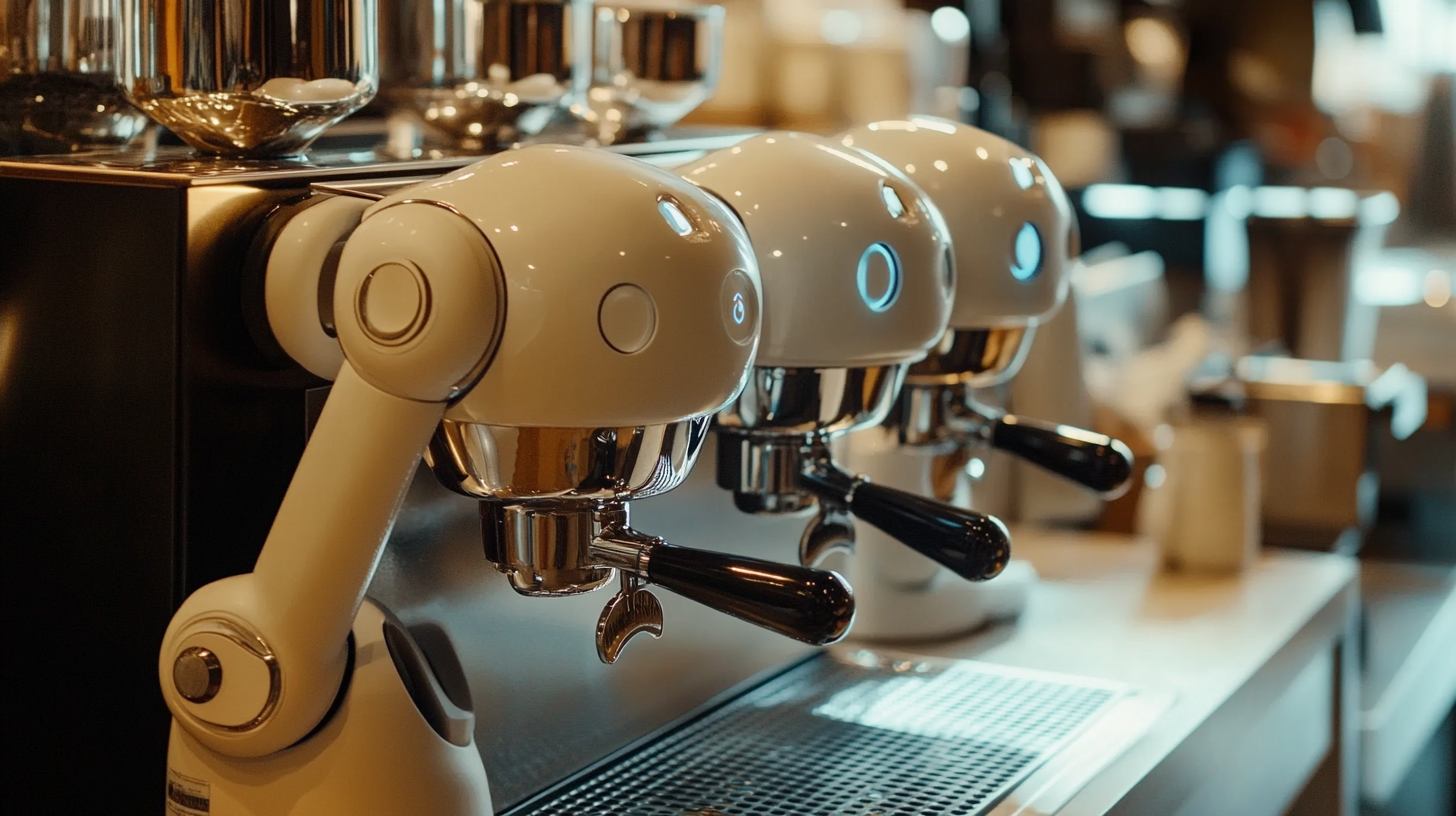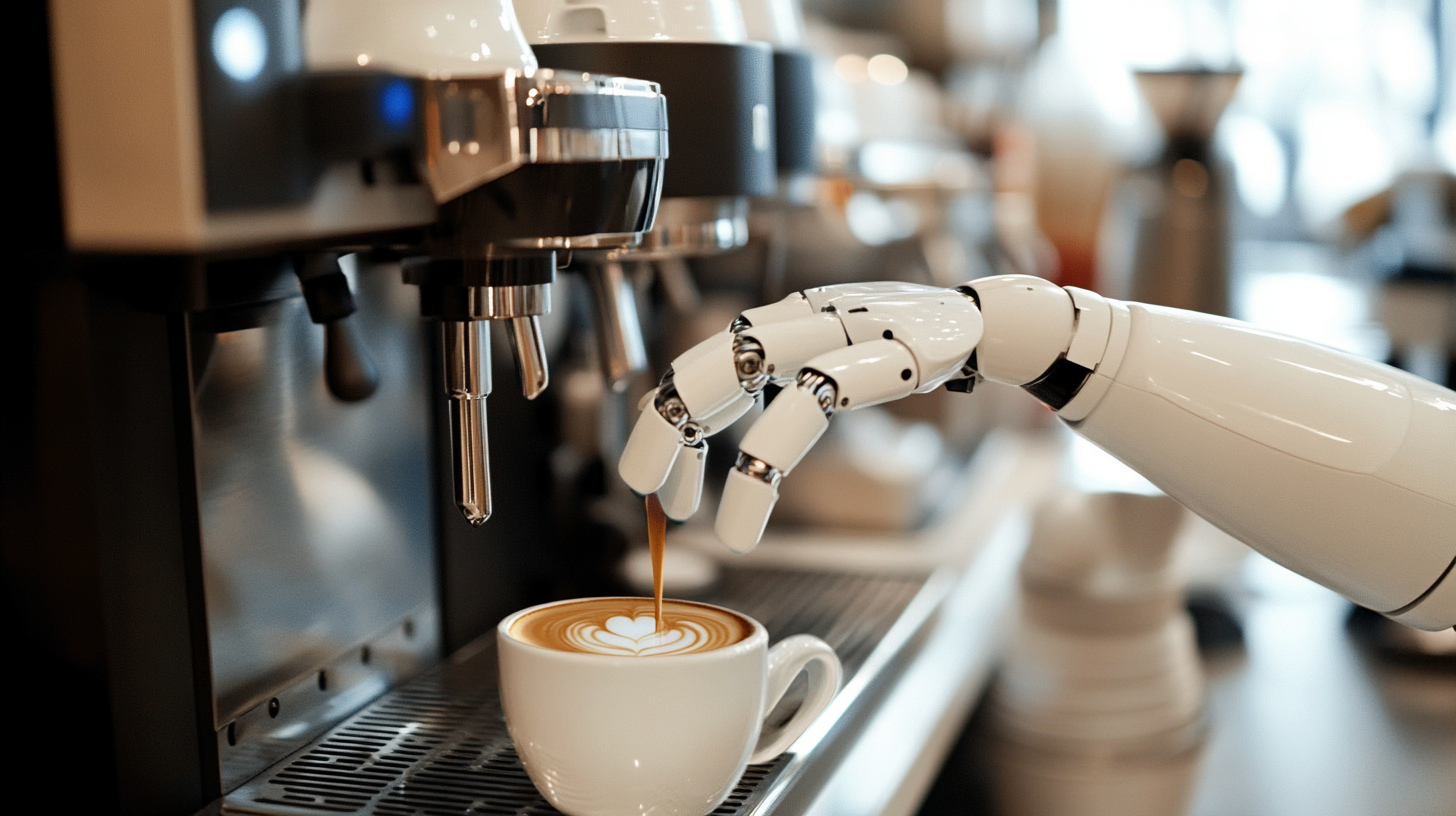In the fast-paced world of modern hospitality, innovative technologies are redefining the guest experience, and one groundbreaking addition is the Coffee Serving Robot. With the increase in demand for efficiency and quality service, these robots are revolutionizing the way coffee is prepared and served, seamlessly integrating into both café environments and hotel lobbies. By automating the coffee serving process, hospitality businesses can enhance not only the speed of service but also the consistency and presentation of beverages, thereby elevating the overall customer experience.
The implementation of Coffee Serving Robots offers numerous operational advantages, including reduced labor costs, minimized human error, and the ability to serve a wider variety of coffee drinks with precision. As the industry continues to evolve, embracing such advanced technologies can provide establishments with a competitive edge, attract a tech-savvy clientele, and streamline workflows. In this blog, we will explore the significant benefits of integrating Coffee Serving Robots into modern hospitality settings and how they can help elevate service standards while meeting the diverse needs of today’s consumers.

In the ever-evolving world of hospitality, the integration of technology plays a crucial role in enhancing customer experiences. Coffee serving robots are at the forefront of this innovation, offering a unique way to engage patrons while delivering their favorite beverages. These high-tech machines combine efficiency with personalization, ensuring customers receive not just a cup of coffee, but an entire experience wrapped in convenience and fun. One of the most significant advantages of adopting coffee serving robots is their ability to streamline service. In busy environments, such as hotels and cafes, these robots can take over routine tasks, allowing staff to focus on more complex interactions that require a human touch. Customers can place their orders via an app or at a designated kiosk, and the robot is programmed to prepare and serve their coffee at just the right temperature and taste, significantly reducing wait times. This not only boosts customer satisfaction but also encourages repeat visits. Additionally, coffee serving robots can enhance the ambiance of a hospitality venue. Guests are often intrigued by the futuristic element of robots at work, which can serve as a talking point and attract attention. Moreover, these robots can be programmed with various personality traits, offering a charming interaction that can make the coffee experience even more delightful. By adopting this innovative technology, hospitality establishments can differentiate themselves in a competitive market and create memorable moments for their guests.

The hospitality industry is witnessing a technological revolution, with coffee serving robots leading the charge in improving efficiency and speed in service. These advanced robots are specially designed to streamline the coffee brewing and serving process, allowing establishments to meet high customer demands without compromising on quality. By automating routine tasks, these machines free up human staff to focus on providing a more personalized dining experience, enhancing customer satisfaction.
Robotics technology not only accelerates service but also minimizes human error in coffee brewing. The precision of these robots ensures that each beverage is crafted to perfection, maintaining consistency in taste and presentation. The ability to prepare multiple orders simultaneously allows for quicker turnaround times, which is especially beneficial during peak hours when customer footfall surges. This not only boosts the establishment's productivity but can also lead to increased revenue through higher table turnover rates.
Furthermore, the implementation of coffee serving robots can significantly reduce operational costs in the long run. With reduced reliance on human labor for routine tasks, cafes and restaurants can allocate their workforce more strategically, investing in areas that require a human touch, like customer engagement. As the technology continues to evolve, the potential for integrating AI and machine learning could further enhance the capabilities of coffee robots, paving the way for a smarter and more efficient service model in the hospitality sector.

The integration of coffee serving robots in modern hospitality represents a transformative approach to managing labor costs. As the hospitality industry continues to evolve, businesses must adapt to rising labor expenses while maintaining a high level of service. Coffee robots present an innovative solution, significantly reducing the need for human baristas in establishments like cafes, hotels, and restaurants. By automating the coffee preparation process, these robots not only streamline operations but also cut down on training and employee overhead, resulting in considerable financial savings.
By employing coffee serving robots, businesses can redirect human resources to more critical areas of service, enhancing customer experience. This transition allows staff to focus on customer interaction rather than time-intensive tasks like brewing and serving coffee. Moreover, coffee robots are programmed to deliver consistent quality with precision, ensuring that customers receive the same great taste with every cup, thereby enhancing overall satisfaction and loyalty.
In addition to cutting labor costs, coffee robots can operate efficiently in high-volume environments, handling multiple orders simultaneously without compromise. This capability is particularly advantageous during peak hours, allowing businesses to meet customer demands swiftly and effectively. The result is not only a reduction in operational expenses but also a boost in productivity, placing establishments ahead in the competitive hospitality market.

In recent years, the hospitality industry has faced significant challenges due to labor shortages, exacerbated by the aftermath of the COVID-19 pandemic. As hotels and restaurants struggle to attract and retain staff, automation solutions have emerged as a vital strategy to sustain operations. One of the most innovative solutions is the implementation of coffee serving robots, which not only streamline service but also address workforce gaps effectively.
According to a report by the National Restaurant Association, approximately 75% of restaurant operators cite labor shortages as a major concern. With the rising demand for high-quality coffee experiences, coffee serving robots provide a solution that minimizes the dependency on human labor while maintaining service excellence. These robots are designed to prepare and serve a variety of coffee beverages with precision and speed, allowing establishments to offer consistent quality and reduce wait times, which is crucial in a fast-paced environment.
The integration of coffee serving robots can also lead to cost savings over time. A study published by Technavio predicted that the global coffee robot market would grow by over 30% annually from 2021 to 2025. By investing in automation, hospitality businesses can reduce labor costs and increase efficiency, enabling them to allocate human resources to more complex tasks that require personal interaction and creativity. With the capability to serve multiple customers simultaneously, these robots also enhance the overall guest experience, making them a valuable asset in modern hospitality.
In the fast-evolving landscape of modern hospitality, the integration of coffee serving robots marks a significant leap towards personalization and efficiency. By leveraging data analytics, these robots are not just serving coffee; they are transforming the customer experience. Through the collection and analysis of customer preferences, behavior patterns, and feedback, coffee serving robots can tailor their offerings to meet the specific tastes and needs of individual guests.
For instance, advanced algorithms can analyze past orders and identify trends, allowing robots to anticipate what a customer may desire on their next visit. If a guest typically enjoys a caramel macchiato during morning hours, the robot can suggest this drink as soon as they place an order. Moreover, the ability to adjust flavors and ingredients based on real-time data enhances customer satisfaction and fosters a sense of connection between the service and the guest.
In addition to personalized service, coffee serving robots help streamline operations, reduce wait times, and alleviate the workload on human staff. This synergy allows baristas to focus on creative aspects of coffee preparation while robots handle routine tasks. By effectively combining data analytics with robotic technology, the hospitality sector can not only improve operational efficiency but also deliver a unique, personalized coffee experience that keeps customers coming back for more.